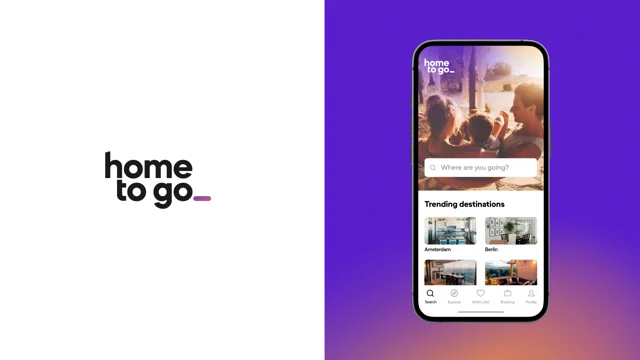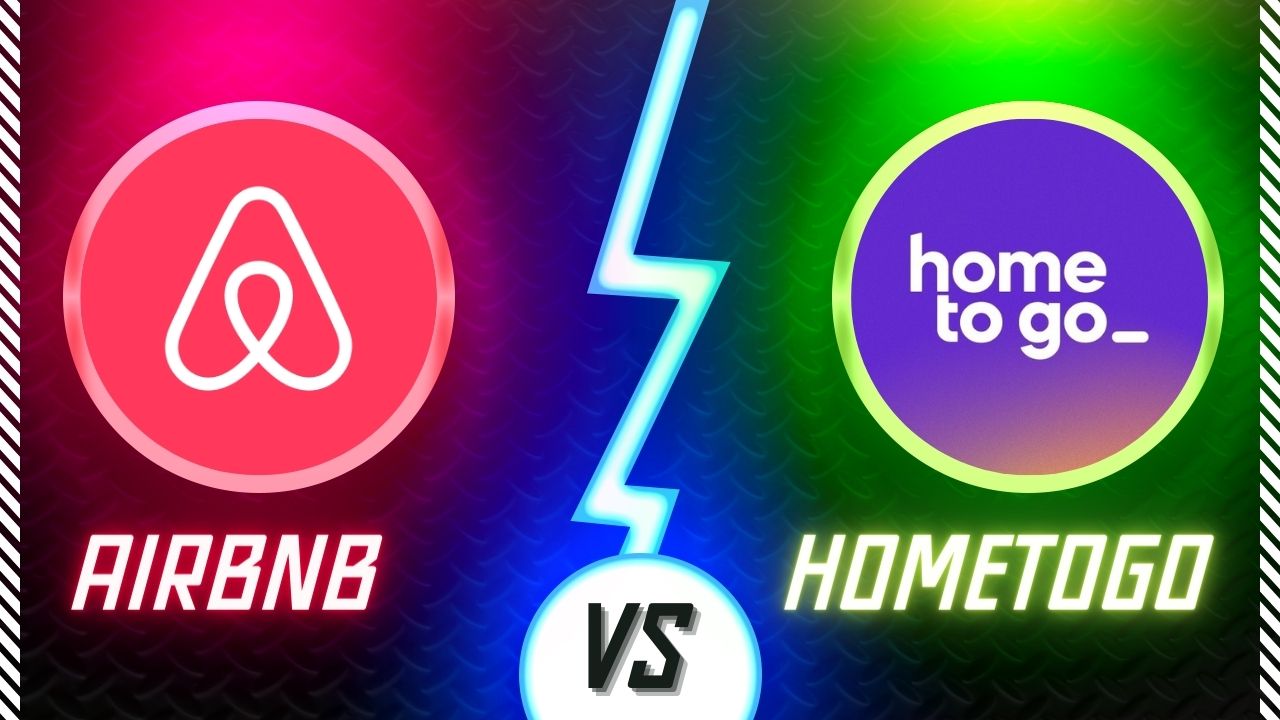Want to take a trip and not sure where to stay?
With many online choices for places to rent, deciding which one is best can be hard. Two big names are Airbnb and HomeToGo.
Wondering which one will give you more for your money?
Or which will make booking and staying easiest? And which one has a fair cancellation process?
In this article, I will look at Airbnb and HomeToGo. This will hopefully help you pick the right place for your trip. Let’s get started!

Airbnb vs HomeToGo: Ease of Use
Airbnb, recognized for its straightforward site and app interface, provides an experience that is both intuitive and familiar to users. The platform has been designed to make searching, booking, and paying for accommodations simple and fast, allowing users to access millions of listings across more than 220 countries conveniently.
On the other hand, HomeToGo, while not a marketplace like Airbnb, operates as a metasearch engine. This means it aggregates results from multiple platforms, including Airbnb itself.
The value of this feature lies in the convenience of comparison – with HomeToGo, you can see the listings from several platforms in one place.
However, it’s worth noting that the share of “onsite bookings” on HomeToGo’s platform is higher in Europe than in the US.
Airbnb vs HomeToGo: Safety Features
Airbnb Safety Features:
- Identity Verification: Airbnb verifies the identities of guests and hosts to promote a secure community.
- Secure Payment System: Airbnb uses a secure payment platform to protect users’ financial information.
- 24/7 Global Response Team: Around-the-clock support for any issues during a stay.
- Insurance Policies: Airbnb provides Host Protection Insurance and Host Guarantee programs for protection against damages and liability.
HomeToGo Safety Features:
HomeToGo acts as more of a search engine for vacation rentals. The safety features user experiences can depend on the individual property provider.
- Reliable Partners: HomeToGo aggregates listings from top home rental providers, ensuring that users are likely to choose from established and trustworthy sources.
- User-Driven Reports: While not explicitly a safety feature, the platform allows for user reviews and reports, which can help identify and address safety-related issues.
Airbnb vs HomeToGo: Unique Offerings
Here’s a comparison of unique offerings provided by Airbnb and HomeToGo –
Airbnb Unique Offerings:
- Experiences: Airbnb provides an “Experiences” section where local hosts offer personalized activities, workshops, and tours, allowing guests to explore local culture and interests.
- Work-Friendly Stays: Airbnb offers several work-friendly stay with amenities like Wi-Fi, a comfortable workspace, and other essentials that cater to business travelers and digital nomads.
- Airbnb Plus: Airbnb Plus selects homes that have been carefully inspected and deemed to provide high-quality design, cleanliness, and outstanding amenities, ensuring a comfortable stay for guests.
- Superhost program: Airbnb recognizes exceptional hosts with a Superhost badge. These hosts possess excellent ratings and consistently deliver outstanding hospitality to their guests.
HomeToGo Unique Offerings:
- Meta-Search Engine: HomeToGo is primarily a meta-search engine for vacation rentals that compiles listings from various sources, allowing users to compare providers, prices, availability, and amenities quickly.
- Largest Selection of Rentals: HomeToGo boasts the world’s largest selection of vacation rentals, offering a vast range of properties from different rental platforms.
- Flexible Search Filters: HomeToGo allows users to search for specific amenities and property features, tailoring results to match their preferences and needs better.
- Flexible Date Search: HomeToGo makes it simple for users to find listings with flexible dates, making it easier to plan vacations when they don’t have a fixed schedule.
Airbnb vs HomeToGo: Pricing
Airbnb Pricing:
Airbnb charges guests a service fee (usually between 0%-20% of the booking cost), which is incorporated into the total cost at checkout.
The price may vary depending on location, number of guests, additional expenses (such as cleaning fees), and the host’s pricing strategy. Airbnb states that they are transparent about costs and fees by providing a detailed breakdown at checkout.
HomeToGo Pricing:
As HomeToGo is a meta-search engine for vacation rentals, it pulls listings and prices from various other websites[. Users can browse and compare prices of over 15 million listings across different platforms.
The final pricing might depend on the individual rental listing and the property provider, making it crucial for users to confirm the charges when booking through HomeToGo thoroughly.
Airbnb vs HomeToGo: Booking Processes
Airbnb Booking Process
Airbnb follows a comprehensive booking process. Typically, you’ll enter your travel dates and location and browse the listings. Once you choose a listing, you need to provide the necessary details and proceed to checkout. Airbnb charges a commission to guests and hosts, usually 14% and 3% of the total booking costs, respectively.
HomeToGo Booking Process
Rather than being a host platform, HomeToGo serves as a search engine for vacation rentals. Users punch in their desired locale, and HomeToGo presents a slew of options from many different property platforms.
HomeToGo doesn’t charge any fees to guests but takes a commission from property owners, typically ranging from 10%-15% of the total booking cost. It curates the best offers in the same place, simplifying the complicated, often time-consuming process of finding somewhere to stay.
It is important to remember that when booking through HomeToGo, you’re redirected to book directly with the property provider. Therefore, the exact booking process may vary depending on the individual platform.
Airbnb vs HomeToGo: Cancellation Policies
Airbnb Cancellation Policy
- Airbnb offers a range of policies, including a “Strict” policy.
- Under the strict policy, cancellations can be made up to 48 hours after booking if check-in is not within 14 days.
- To qualify for a 50% refund, guests must cancel 7 full days before check-in.
- No refunds are given if guests cancel within 7 days of check-in.
- Airbnb suggests that hosts with more flexible cancellation policies may attract more bookings.
HomeToGo Cancellation Policy
- HomeToGo does not have its cancellation policy but adopts the policies of the rental platforms it aggregates.
- When a property is selected on HomeToGo, the user will be redirected to the rental platform hosting the listing.
- The specific cancellation policy for that listing will be detailed on the respective platform.
- You are advised to carefully read and understand the cancellation policy on the listing before proceeding with booking.
Final Verdict

After comparing both platforms, I believe Airbnb is more reliable for your next vacation stay. With many listings available across the globe, ease of use, and a comprehensive rating system, Airbnb will likely provide a more enjoyable experience.
Also, their well-defined cancellation policy provides an extra sense of security. However, where you book should ultimately reflect your needs and travel style.




